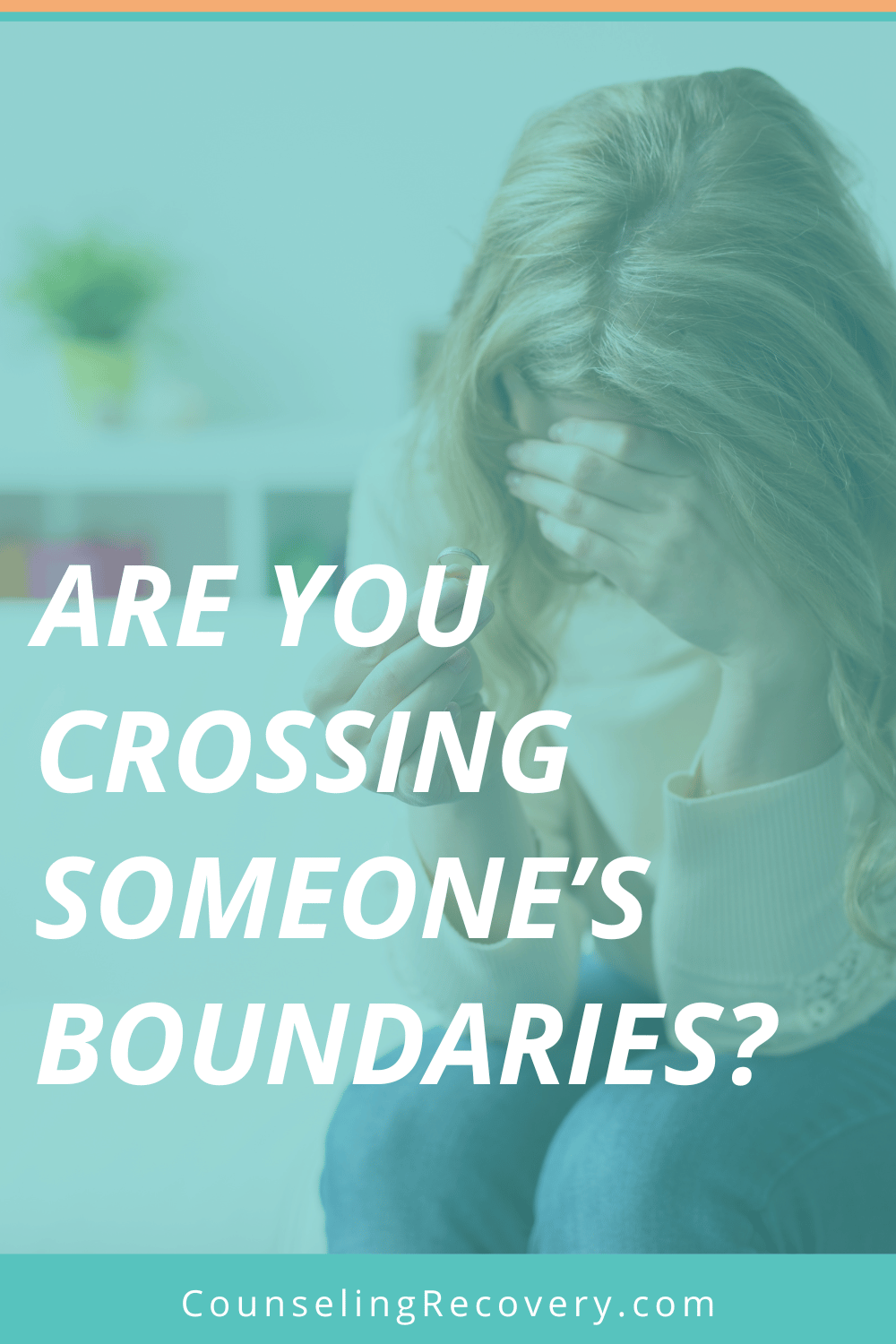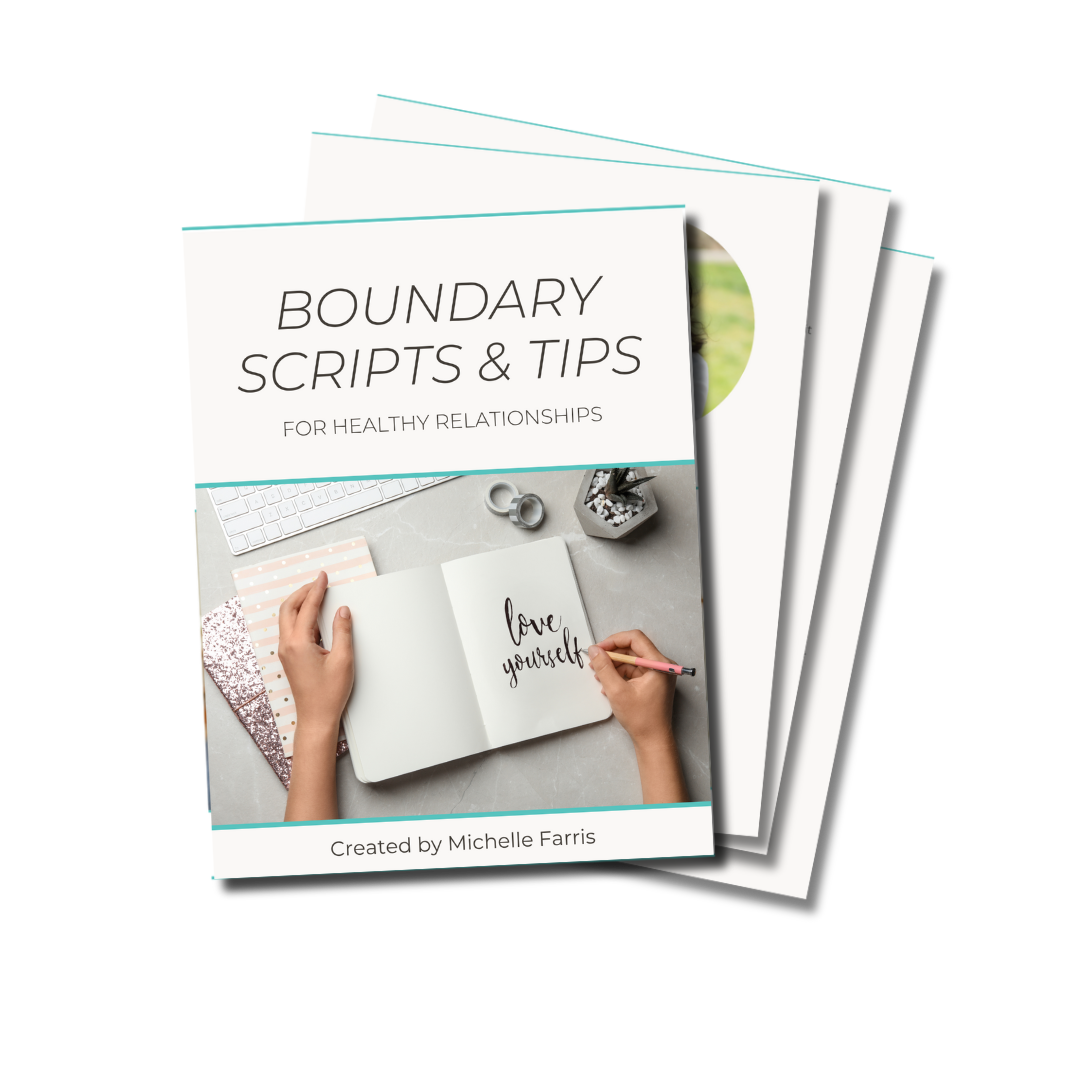Are You Crossing Someone’s Boundaries Without Realizing It?
Most of us think of boundaries as something other people cross — not us. But the truth is, even the most caring, big-hearted people can unintentionally violate someone’s boundaries.
It doesn’t happen because we’re selfish or rude. It happens because we care, we want to connect, or we’re trying to help. But without realizing it, we might be sending the message that our needs matter more than theirs. That’s what happens when we find ourselves crossing other people’s boundaries.
Here are seven subtle ways this can show up — and what you can do instead.
1. Ignoring Someone’s Request (Without Realizing It)
When someone says “no” or asks for space, it can feel uncomfortable. Our instinct may be to check in, make sure they’re okay, or offer help. But doing that can unintentionally ignore their boundary.
Respect means honoring their request, even when it’s hard. Give them space and trust they’ll reach out when they’re ready.
2. Texting Repeatedly Instead of Waiting for a Response
If someone doesn’t reply right away, it’s easy to assume something’s wrong. So we send another text… and then another. Not being able to tolerate waiting for the other person to respond can be a sign of codependency. YOu may find it’s unbearable which may indicate an unhealthy dependency.
By the way…click below to watch this on video!
But repeatedly texting or calling someone can feel like pressure to the other person. Healthy communication means sending one message and letting it be. It helps to get busy with another taks or call someone else if you need to reason things out.
Remember, silence doesn’t always mean rejection — sometimes it just means they need something different.
3. Thinking You Know Better (and Justifying It)
Have you ever thought, “I know what they need — they just don’t see it yet”? Even with good intentions, this crosses a line. You may think you know exactly how to help or what the other person needs but by crossing their boundary you’re sending the message that what you think matters more than what others need.
Boundaries are about respecting another person’s right to choose — even when we disagree. Instead, try asking: “Would you like to hear my thoughts, or do you just want me to listen?” It instantly builds trust and respect.
4. Physical Contact Without Permission
Giving a hug or touching someone’s arm can feel caring to us — but not everyone experiences it that way. Physical touch without consent can feel intrusive and cause someone to withdraw, especially if the person has experienced abuse. Assuming that everyone will want affection misses the point.
Instead, just ask: “Would you like a hug?” It’s simple, kind, and shows emotional awareness.
5. Giving Unsolicited Advice
When someone we love is hurting it’s common to offer advice because we care — but if it’s not asked for, it can feel controlling. Before giving your opinion, pause and ask: “Would you like my thoughts, or do you just need to vent?” As a therapist myself, I have had to learn this the hard way. But that one question can shift the focus from fixing to connecting.
People don’t want advice, they want to be heard.
6. Oversharing or Expecting Emotional Labor
When we share too much too soon or lean on someone who isn’t emotionally available, it can overwhelm the relationship. Boundaries aren’t just about saying no — they’re also about knowing what’s appropriate to share and when. Telling someone your life story before you take the time to really know them usually backfires. Healthy people are repelled by oversharing.
Save your deeper processing for the people who’ve earned that level of trust.
7. Trying to “Fix” Someone’s Feelings
When someone’s upset, it’s natural to want to help them feel better. But saying things like, “Don’t feel that way” or “It’s not that bad” can make them feel unseen. The desire to make other feel better can be a way to avoid hearing someone’s pain because it triggers our own.
True empathy means being present, not fixing their problem. Try this instead: “That sounds really hard. I’m here for you.”
Final Thoughts
If you see yourself in any of these examples, you’re not alone!
Most people don’t realize when they’ve crossed a boundary because they truly care and want to be helpful. But this is part of having relationships that work - hearing someone’s limit and respecting it. That’s what builds healthy connections and that’ what I want for you!
Because when you learn how to respect others’ boundaries, you also strengthen your own.
Get my FREE Boundary Scripts!
Your next step is to implement my Boundary Scripts so you know exactly what to say when you set a boundary!


